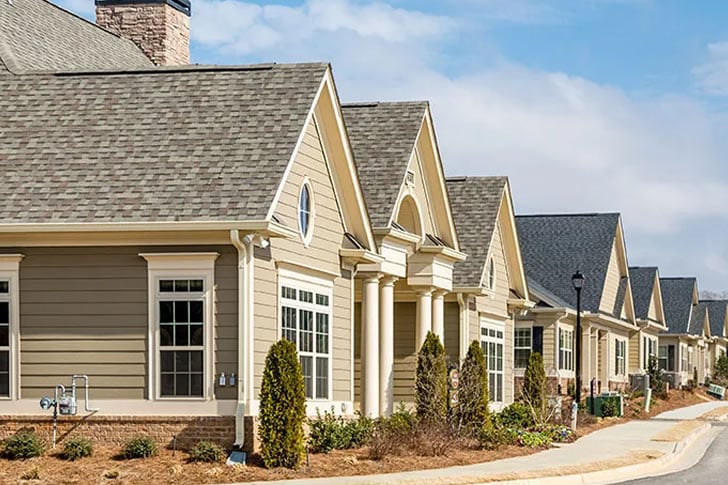As we age, making informed decisions about housing, finances, and wellness becomes increasingly important. Navigating these aspects of life can be overwhelming for seniors, but with the right information and resources, it is possible to create a fulfilling and secure retirement. This comprehensive guide aims to provide valuable insights and tips for seniors to manage housing, finances, and well-being effectively.
Housing Options for Seniors
Choosing appropriate housing is crucial for a senior's quality of life. Various options cater to different needs, preferences, and budgets. Here are some common housing choices to consider:
1. Aging in Place
Many seniors prefer to stay in their own homes as they age. Here are some strategies to successfully age in place:
- Home Modifications: Consider modifying your home to enhance accessibility. This may include installing grab bars, using non-slip mats, or enhancing lighting.
- In-Home Care Services: If assistance is needed, explore hiring in-home care services for help with daily activities such as bathing, cooking, and medication management.
- Community Resources: Look for local programs or organizations that offer services like transportation, meal delivery, and social activities for seniors.
2. Independent Living Communities
For those considering a change, independent living communities provide a social and engaging environment:
- Active Lifestyle: These communities often offer various amenities, including recreational activities, fitness programs, and social clubs, allowing seniors to lead an active lifestyle.
- Maintenance-Free Living: Residents typically do not have to worry about yard work or home repairs, making it easier to enjoy retirement.
- Assessment of Needs: Ensure the community aligns with your preferences, budget, and future care needs.
3. Assisted Living Facilities
Assisted living is a suitable choice for seniors who need some assistance with daily activities:
- Personalized Care: These facilities provide assistance with tasks such as bathing, dressing, and medication reminders, while also promoting independence.
- Social Opportunities: Residents can engage with peers, participate in activities, and enjoy communal dining, creating a supportive community atmosphere.
- Variable Costs: Understand the payment structure, as costs can vary based on individual care needs.
4. Memory Care and Skilled Nursing Facilities
For seniors with more advanced care needs, memory care and skilled nursing facilities may be appropriate:
- Memory Care: Specialized programs are designed for individuals with Alzheimer’s or other forms of dementia, ensuring safety and providing tailored care.
- Skilled Nursing: These facilities offer 24/7 medical care for seniors with complex health issues, providing comprehensive support and rehabilitation services.
Financial Planning for Seniors
Planning for financial stability is essential in ensuring peace of mind during retirement. Here are steps seniors can take to secure their financial future:
1. Evaluate Your Current Financial Situation
- Create a Budget: Assess your monthly income and expenses to create a realistic budget. Include all sources of income, including pensions, Social Security, and retirement savings.
- Track Spending Habits: Regularly monitor expenses to identify areas for potential savings.
2. Understand Social Security Benefits
- Apply Strategically: Understand your Social Security benefits and when to start collecting them. Delaying benefits until full retirement age or beyond can increase your monthly payments.
- Spousal Benefits: If applicable, research spousal or survivor benefits to maximize income.
3. Health Care Costs and Insurance
- Medicare and Medicaid: Familiarize yourself with Medicare coverage options. Ensure you understand what services are covered and any potential out-of-pocket costs.
- Supplemental Insurance: Look into Medigap plans or Medicare Advantage to help cover additional health-related expenses.
4. Planning for Long-Term Care
- Long-Term Care Insurance: Consider purchasing long-term care insurance to help cover costs associated with in-home care or nursing facilities. Evaluate existing policies and understand waiting periods, exclusions, and coverage limits.
- Establish a Plan: Create a long-term care plan that outlines your preferences for care and housing should the need arise in the future.
Wellness and Health for Seniors
Maintaining physical, mental, and emotional well-being is vital for a fulfilling retirement experience. Here are some key areas to focus on:
1. Regular Health Check-Ups
- Stay on Schedule: Routine check-ups with healthcare providers can help detect health issues early and maintain overall health.
- Preventive Care: Take advantage of preventive services available through Medicare, including vaccinations, screenings, and wellness visits.
2. Physical Activity
- Engagement in Exercise: Regular physical activity, such as walking, swimming, or yoga, can improve strength, flexibility, and cardiovascular health. Aim for at least 150 minutes of moderate exercise each week.
- Social Activities: Participate in group classes or community activities to combine exercise with social interaction.
3. Cognitive Health
- Mental Stimulation: Engage in activities that challenge the mind, such as puzzles, reading, or learning new skills. Online courses and workshops can provide mental stimulation.
- Social Connections: Maintain relationships with family and friends to foster emotional support and reduce feelings of isolation.
4. Nutrition and Diet
- Balanced Diet: Focus on a nutritious diet rich in fruits, vegetables, whole grains, lean proteins, and healthy fats to support overall health.
- Hydration: Drink plenty of water throughout the day to stay hydrated. Limit sugary and alcoholic beverages for optimal health.
Embracing Technology for Enhanced Living
Technology can play a significant role in enhancing the quality of life for seniors:
1. Home Automation
- Smart Home Devices: Consider using smart devices such as automated lighting, thermostats, and security systems to simplify daily life and enhance safety.
- Health Monitoring Devices: Wearables like fitness trackers or smartwatches can help monitor health metrics, encouraging active lifestyles while providing peace of mind for both seniors and their families.
2. Online Communication
- Stay Connected: Utilize video calls, social media, and messaging apps to stay connected with family and friends, enhancing social interactions and reducing feelings of loneliness.
- Online Resources: Explore websites and apps that provide health information, educational resources, and online classes tailored specifically to seniors.
Conclusion
Navigating housing, finances, and wellness as a senior requires informed decision-making and proactive planning. By understanding various housing options, investigating financial strategies, and prioritizing overall health and wellness, seniors can significantly enhance their quality of life. Remember, it's never too late to seek support from professional advisors, healthcare providers, and community resources. With careful planning and the right mindset, seniors can embrace a fulfilling, active, and vibrant retirement fully.



